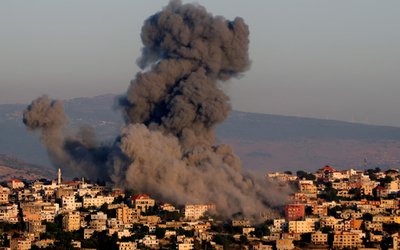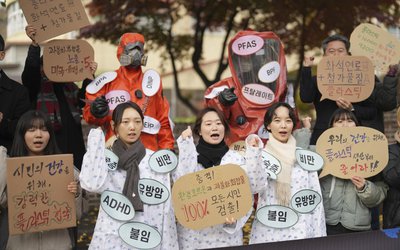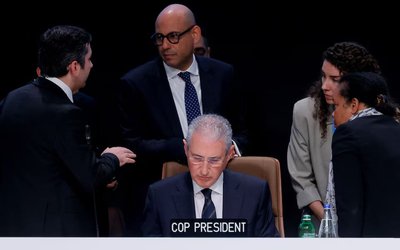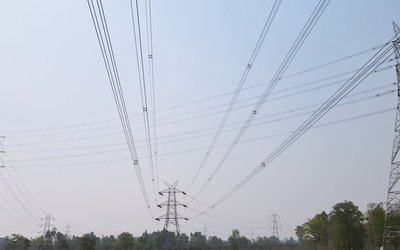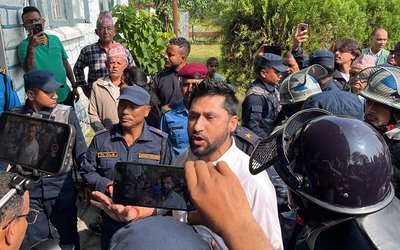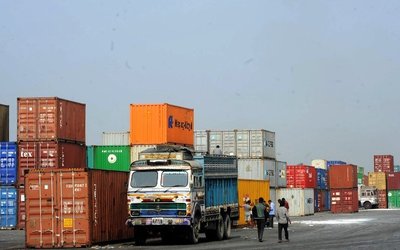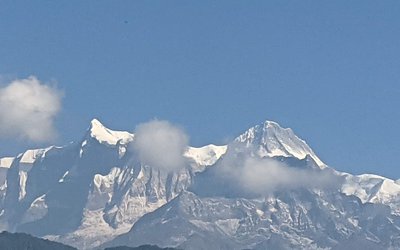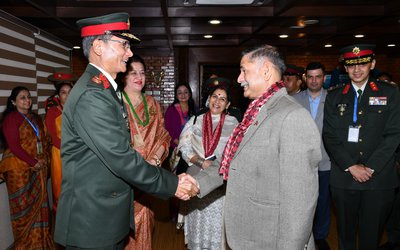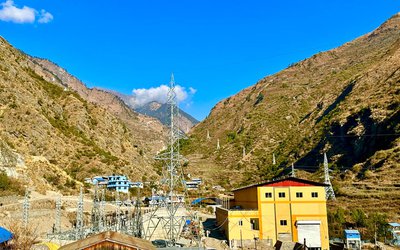
As a close neighbor with multiple relations, India will be the next to face consequences that Nepal faces. At a time when the political deadlock has pushed Nepal into a prolong crisis, Indian Prime Minister Modi approached Prime Minister Sushil Koirala with some wise counsel.
Following the violent movement that disturbed the life of Nepalese, Indian Prime Minister Modi called his counterpart Koirala in the following morning urging him to resolve all outstanding issues through dialogue.
Talking to prime minister Koirala on telephone, Indian Prime Minister Modi reiterated the message that the political leadership of Nepal should resolve all outstanding issues through dialogue between all political parties and through the process of widest possible consultations, including with the public, so as to strengthen the climate of trust and confidence across and between all sections of society, and arrive at solutions that reflect the will and accommodate the aspirations of all citizens of a richly diverse society within a united, peaceful, stable and prosperous Nepal.
Expressing his sorrow at the loss of life in Kailali, Indian Prime Minister Modi extended his condolences to the families of the deceased and the people of Nepal.
According to a press release issued by Indian Embassy, Prime Minister Modi expressed his concern that political and social instability would seriously compound the tragedy caused by the recent earthquake in Nepal.
Prime Minister Modi called for exercise of restraint and restoration of peace and order. He appealed to the government, all political parties and the people of Nepal to eschew violence and maintain social harmony.
He lauded the historic progress that Nepal had made in the peace process and drafting its Constitution. Prime Minister Modi also conveyed that, as a neighbor, India would do all it can for security in Nepal.
Prime Minister Modi assured Prime Minister Koirala that India’s one and only desire was to see the emergence of a peaceful, secure, stable, democratic and prosperous Nepal, which draws strength from its rich social diversity, enormous resources and extraordinary talent.
According to the press release, he reiterated, India will continue to provide all support to Nepal, in accordance with the wishes and priorities of the people of Nepal, to achieve that goal.
The Hindustan Times reported that while expressing sorrow at the loss of lives at the violence in Nepal and extending his condolences, Prime Minister Narendra Modi has told his Nepali counterpart Sushil Koirala that 'five to ten people' cannot 'sit in a room' and 'impose a Constitution' and called for greater inclusion in the process.
Top sources from Kathmandu told HT, on the strict condition of anonymity, that PM Modi was deeply sad at the violence given his affinity for Nepal. But he also reiterated his earlier position that there must be the widest possible consultation as Nepal finalizes its Constitution. There is a realization in the government that this has been a top driven process, which has not taken into account the views of diverse social and political groups on the ground.
Modi is understood to have asked Koirala to reach out to dissenters, "Five to ten people cannot sit in a room and write the constitution. All parties and forces should sit together. There must be greater dialogue."
HT reported that, quoting sources in Delhi, Modi made it clear that it was inappropriate for Nepal's leadership to drag in India and this would not help matters - it was also Nepal's domestic issue. Given the open border though, India - an official statement about the conversation said - 'would do all it can for security in Nepal'.
We Are Concerned: Rupert Colville
“We are concerned by reports from Nepal of continuing political violence. Seven members of the security forces and three protestors were reportedly killed yesterday. The two year-old son of one deceased police officer was also killed. This is in addition to the deaths of five protestors during widespread demonstrations since an 8 August agreement by political parties on redrawing internal state boundaries,” said Rupert Colville, High Commissioner for Human Rights in a press statement issued from Geneva.
The agreement was the product of extended negotiations to draw up a new constitution further to the Comprehensive Peace Agreement that ended the ten-year internal conflict in 2006. Since the political agreement was reached, increasingly violent protests and strikes against the proposed delineation have taken place throughout the country.
According to a press release issued by United Nation Information Center, there is a clear risk that the protests and violence will continue to feed off each other in the coming days unless all sides change their approach. The rights to freedom of expression, association and assembly are essential elements in the promotion of democracy and human rights.
Likewise, protests should be carried out in a peaceful manner. We urge the Government of Nepal to create a climate where minority or dissenting views or beliefs are respected, and security forces only employ force as a last resort and in full accordance with the standards laid out under international law for maintaining public order, including detailed guidelines governing the use of live ammunition.* Moreover, protestors should not pursue violent confrontations with the security services.
“We urge political leaders and protestors to sit down together to find a peaceful solution to the current situation before the rising violence spirals out of control.
“We fully support the call of the Nepal National Human Rights Commission for an independent, thorough and impartial investigation into all deaths and injuries resulting from the alleged use of disproportionate force by security personnel, as
- PM Oli's Visit To China: Geopolitical Implications
- Nov 19, 2024
- NEA: Kul Man Ghising, A Cool Man
- Oct 28, 2024
- DASHAIN FESTIVAL : Festival of Unity
- Oct 04, 2024
- NEPAL-CANADA Bilateral Meeting
- Oct 04, 2024
- MIDDLE BHOTEKOSHI: Final Stage
- Sep 23, 2024

